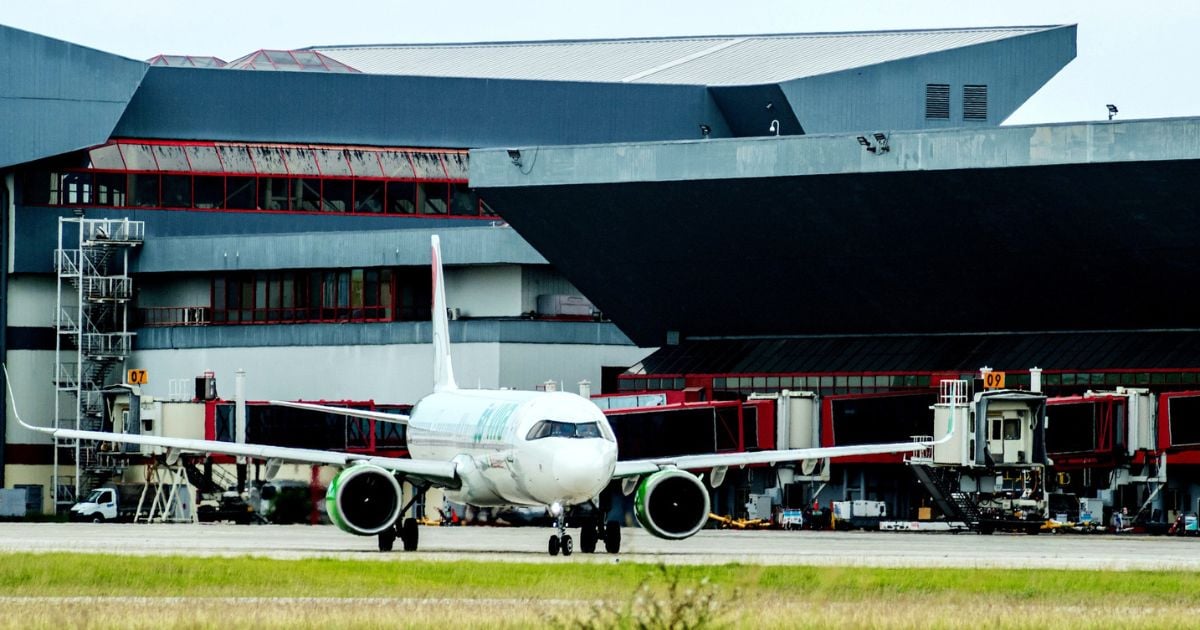
The Cuban government announced that, despite the collapse of the National Electroenergetic System (SEN) on Wednesday, transportation services remain operational, albeit in a context of scarcity and with exceptional measures in place.
Eduardo Rodríguez Dávila, Minister of Transport, stated on Facebook that the international airports will maintain the 70 scheduled flights for this Wednesday, including 37 at José Martí International Airport in Havana.
The branch head indicated that this is possible due to the use of their own energy backup systems, which allow for "ensuring services for passengers and aircraft."
The National Omnibus Company stated that the 158 planned national trips will be carried out, along with 18 from Viazul and 5 from Medibús, the latter intended for patients requiring medical care in other provinces.
Rodríguez stated that the national trains have announced the departure of the Habana-Holguín at 7:20 PM and the Guantánamo-La Habana at 3:40 PM.
The Minister indicated that in upcoming publications, he will provide further details about transportation services during this new collapse of the national electrical system, which he referred to as an "electrical contingency."
While the government seeks to maintain a semblance of normality in transportation services, the country's situation reveals a crisis that extends beyond just the electricity supply, profoundly affecting the living conditions of the population.
José Martí International Airport announced on social media this Wednesday that, despite the new widespread blackout, the airport facility, the largest and most important in the country, remains open.
"Despite the recent interruption of the National Electric System, our airports remain operational," they stated.
For its part, the Ministry of Energy and Mines announced on social media Wednesday morning that the gradual restoration of the national electricity system had begun through the "creation of islands," as had occurred in the previous two outages.
In a post on MINEM's X account, Vicente de la O Levy explained that "the conditions are more favorable than during the last disconnection," and added that compliance with the procedures is not affected by the hurricane.
The Cuban government also announced that classes and non-essential work have been suspended in Cuba due to the new general blackout that started early this morning.
Frequently Asked Questions about the Energy Crisis and Transportation in Cuba
How do mass blackouts affect transportation in Cuba?
Despite the massive blackouts in Cuba, the government is trying to keep transportation services operational by using backup energy systems. However, these services are functioning in a context of precariousness and with exceptional measures, leading to delays and limited operations for trains, buses, and flights.
What measures is José Martí International Airport taking to continue operating during power outages?
José Martí International Airport is implementing contingency measures such as the use of electric generators to ensure that operations continue without disruptions. These measures ensure that the terminals remain operational despite interruptions in the National Electric System (SEN).
Why does the National Electric System in Cuba continue to collapse?
The collapse of the National Electric System (SEN) in Cuba is primarily due to the deterioration and lack of maintenance of the electrical infrastructure, particularly of the Antonio Guiteras Thermoelectric Plant, the largest in the country. Additionally, the lack of investment in modernization has worsened the situation, impacting the quality of life for the population.
What impact does the energy crisis have on the daily lives of Cubans?
The energy crisis in Cuba is causing power outages of up to 20 hours a day, limiting access to basic services such as food, water, and medical care. This situation has heightened social discontent and sparked protests in various regions of the country.
Filed under: